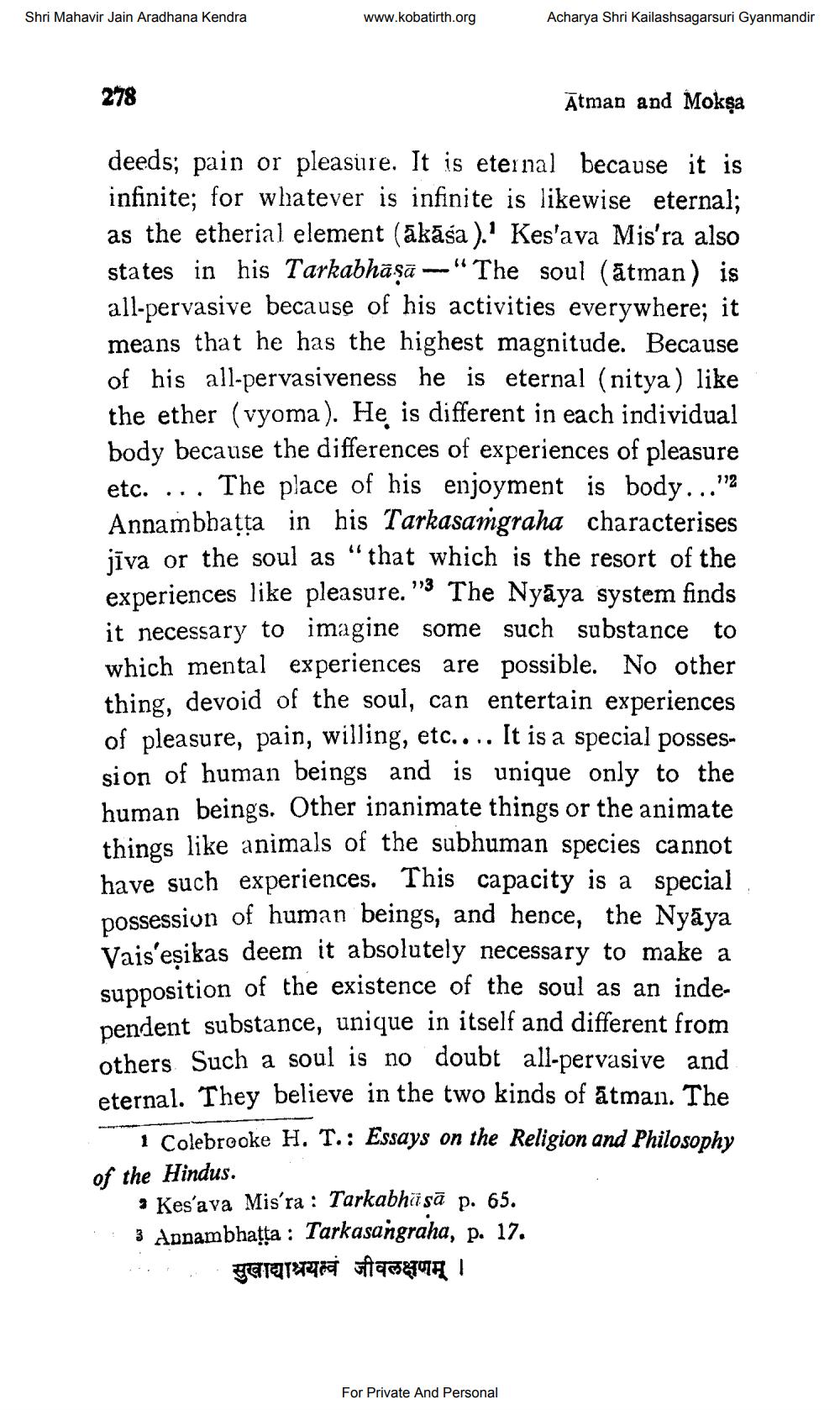________________
Shri Mahavir Jain Aradhana Kendra
www.kobatirth.org
Acharya Shri Kailashsagarsuri Gyanmandir
278
Ātman and Moksa
deeds; pain or pleasive. It is eternal because it is infinite; for whatever is infinite is likewise eternal; as the etherial element (ākāsa).' Kes'ava Mis'ra also states in his Tarkabhāsā "The soul (atman) is all-pervasive because of his activities everywhere; it means that he has the highest magnitude. Because of his all-pervasiveness he is eternal (nitya) like the ether (vyoma). He is different in each individual body because the differences of experiences of pleasure etc. ... The place of his enjoyment is body..."2 Annambhatta in his Tarkasangraha characterises jīva or the soul as “that which is the resort of the experiences like pleasure.''3 The Nyaya system finds it necessary to imagine some such substance to which mental experiences are possible. No other thing, devoid of the soul, can entertain experiences of pleasure, pain, willing, etc. ... It is a special possession of human beings and is unique only to the human beings. Other inanimate things or the animate things like animals of the subhuman species cannot have such experiences. This capacity is a special possession of human beings, and hence, the Nyāya Vais'esikas deem it absolutely necessary to make a supposition of the existence of the soul as an independent substance, unique in itself and different from others. Such a soul is no doubt all-pervasive and eternal. They believe in the two kinds of ātman. The
I Colebrooke H. T.: Essays on the Religion and Philosophy of the Hindus.
* Kes'ava Miséra : Tarkabhäsā p. 65. 3 Apnambhatta : Tarkasangraha, p. 17.
सुखाद्याश्रयत्वं जीवलक्षणम् ।
For Private And Personal




